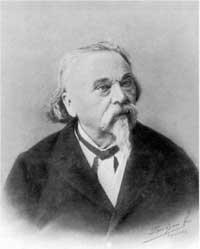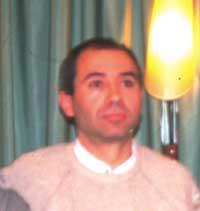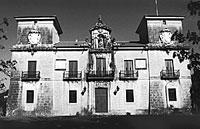Léopold de Folin
1996/07/01 Altonaga, Kepa - EHUko biologia irakaslea Iturria: Elhuyar aldizkaria
July 5 marks the centenary of the death of Léopold de Folin. Probably with the name of Léopold de Folin, almost nobody will be known, although it deserves a place of honor in the history of wildlife research in Euskal Herria and in the annals of marine biology, which pioneered and energized both.
Folin is a French marquis who excelled in the advancement of marine biology (Tournus, Saòne-et-Loire, 1817 - Biarritz, 1896).
He studied at the Brest Navy Academy and then worked as an officer on French ships until 1847. Abandoned the active service, he was appointed principal of the port of Saint-Nazaire in 1857, transferred to Pauillac (near Bordeaux) in 1861 with the same level and finally to Baiona in 1868, where he remained until his withdrawal in 1880. After and during death he lived in Biarritz.

However, the importance of Folin, far from his professional activity, comes from the work done in the field of natural sciences: Folin was one of the precursors of underwater explorations for zoological research. On its initiative the French government enabled the research vessel Travailleur, especially during three exploration campaigns of deep slopes of the Gulf of Bizkaia (1880, 1881, and 1882); another campaign of the Talisman in 1883.
The data obtained were the essence of a large number of scientific articles: He nominated and described about 300 new species of molluscs, not to mention crustaceans and foraminifers. He also described eight new genres. With the theme of marine research and navigation, he produced several books such as Sous les mers -1887- and Bateaux et navires. Progrès de la construction navale à tous les âges et dans tous les Pays - 1882) and in the same line managed the magazine Les Fonds de la Mer (1867 1887).
A prosperous writer and researcher, in our opinion, Pêches et Chasses Zoologiques is his most global book, since, in addition to summarizing and accumulating in him all the knowledge that was accumulating throughout life, highlighted his thought about nature. In fact, it is a natural guide of the North Basque Country, although quite unbalanced. Almost half of the book is dedicated to marine invertebrates, especially molluscs (including freshwater and terrestrial ones), although there are chapters dedicated to plants, insects, fish, birds and mammals. Together with the indications on the different taxonomic groups, each chapter offers a series of methodological considerations for the correct treatment of biological material. On the other hand, in order to facilitate the observation of the species mentioned in nature, Folin provided the book with a series of natural itineraries with suggestive proposals to the reader. Thus, it takes us through the beaches of Iparralde, from Biarritz to Sara, from Donibane Lohizune to Bera, from Kanbo to Behenafarroa, etc.
He was one of the founders of the Société des Sciences et Arts de Bayonne and its first president (1873-78). In the same way, the idea of oceanographic museum proposed by Folin had a decisive influence to break the path of the Biarritz Musée de la Mer Aquarium (1935), which would later be constituted. In fact, on its first floor we can see the room dedicated to Folin.
Therefore, in 1894 the Academy of Sciences of Paris awarded the Delalande-Guérineau prize to Folin for his set of works. A street in Biarritz is also named after him.

Gai honi buruzko eduki gehiago
Elhuyarrek garatutako teknologia





